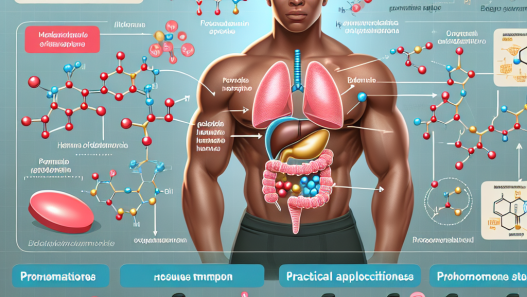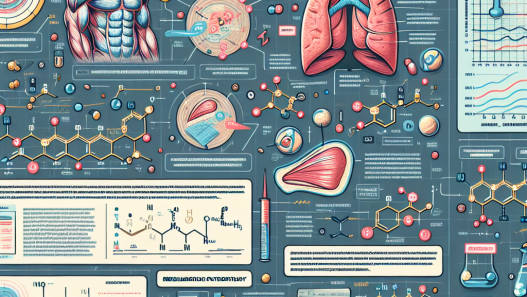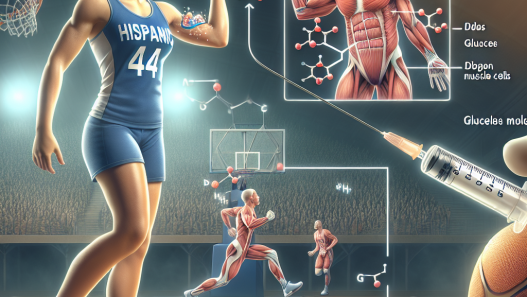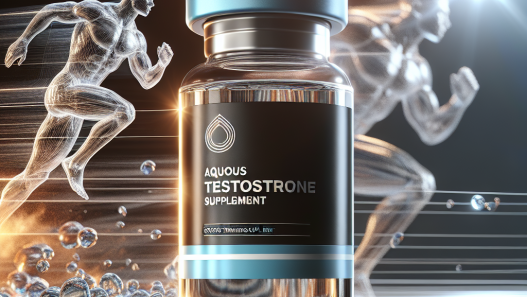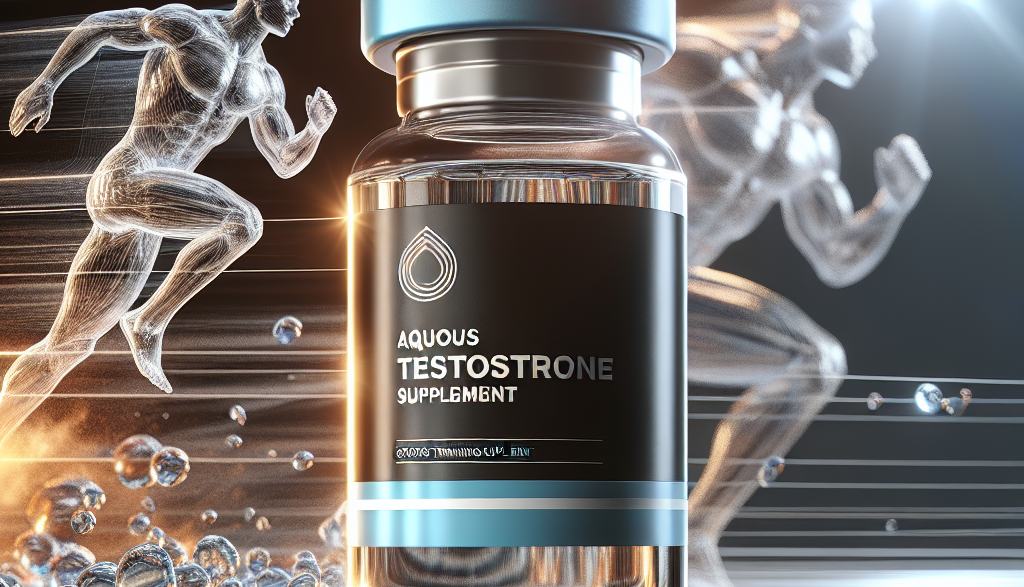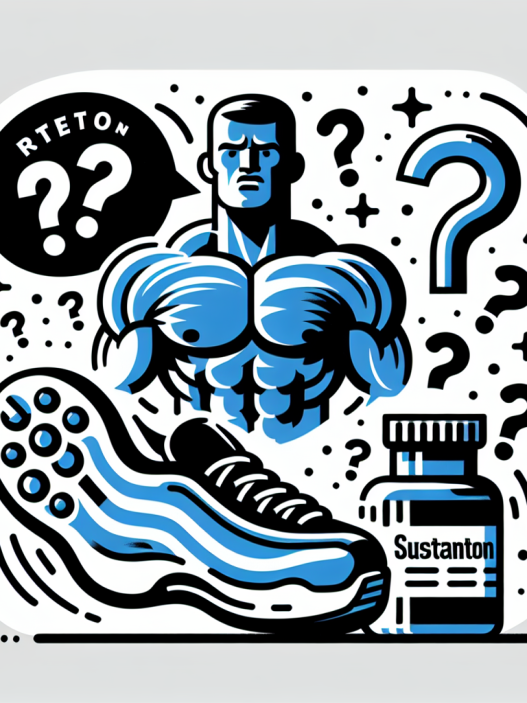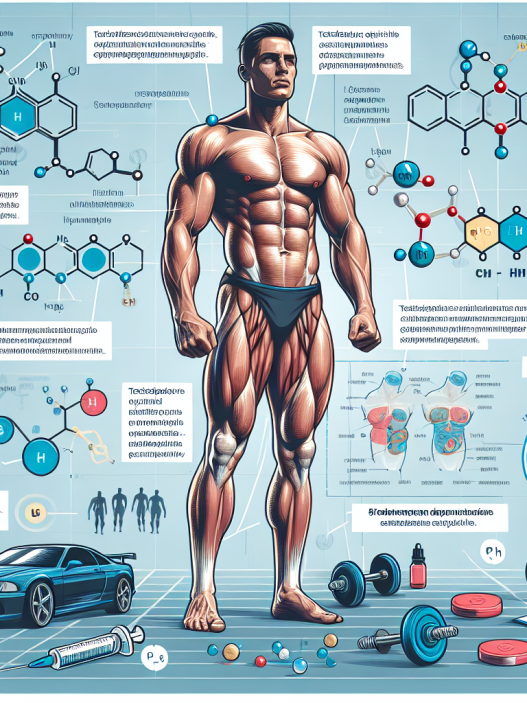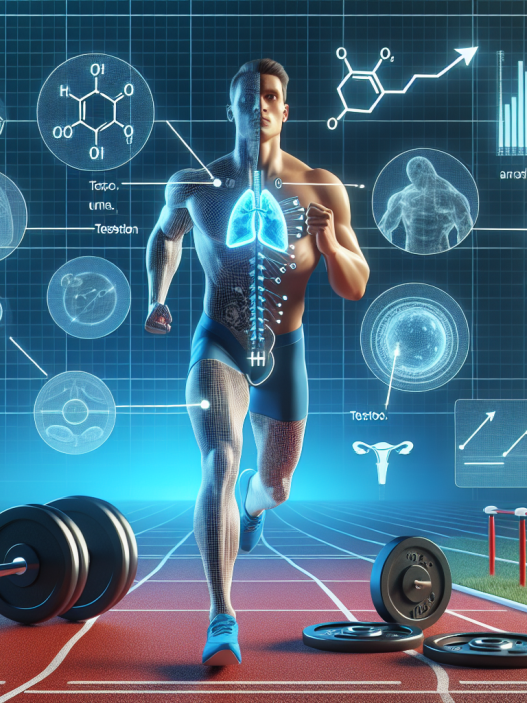-
Table of Contents
- Aquous Testosterone Suspension as a Supplement for Sports Training
- What is Aquous Testosterone Suspension?
- Pharmacokinetics of Aquous Testosterone Suspension
- Pharmacodynamics of Aquous Testosterone Suspension
- Benefits for Sports Training
- Controversy and Regulations
- Conclusion
- Expert Opinion
- References
Aquous Testosterone Suspension as a Supplement for Sports Training
Sports training and performance enhancement have become increasingly popular in recent years, with athletes constantly seeking new ways to improve their physical abilities. One method that has gained attention in the sports world is the use of testosterone supplements. Among the various forms of testosterone available, aquous testosterone suspension has emerged as a popular choice for athletes looking to enhance their training and performance. In this article, we will explore the pharmacokinetics and pharmacodynamics of aquous testosterone suspension and its potential benefits for sports training.
What is Aquous Testosterone Suspension?
Aquous testosterone suspension is a form of testosterone that is suspended in water instead of oil. This allows for a faster absorption rate and a quicker onset of action compared to other forms of testosterone. It is typically administered through intramuscular injection and is commonly used by athletes for its performance-enhancing effects.
Pharmacokinetics of Aquous Testosterone Suspension
The pharmacokinetics of aquous testosterone suspension are unique due to its water-based composition. Once injected, the suspension is rapidly absorbed into the bloodstream, resulting in a quick increase in testosterone levels. This rapid absorption is due to the suspension particles being smaller than those of oil-based testosterone, allowing for easier and faster absorption into the muscle tissue.
Studies have shown that the peak testosterone levels after administration of aquous testosterone suspension occur within 15-30 minutes, with levels returning to baseline within 2-3 days (Kicman et al. 1992). This rapid onset and short duration of action make it a popular choice for athletes who need a quick boost in testosterone levels before a competition or training session.
Pharmacodynamics of Aquous Testosterone Suspension
The pharmacodynamics of aquous testosterone suspension are similar to other forms of testosterone. Testosterone is a hormone that plays a crucial role in the development and maintenance of male characteristics, such as muscle mass and strength. It also has an anabolic effect, promoting protein synthesis and muscle growth.
Studies have shown that administration of aquous testosterone suspension can lead to an increase in muscle mass and strength (Kicman et al. 1992). This is due to the increased levels of testosterone in the body, which can stimulate muscle growth and repair. Additionally, testosterone has been shown to improve athletic performance by increasing energy levels, endurance, and recovery time (Bhasin et al. 1996).
Benefits for Sports Training
The use of aquous testosterone suspension as a supplement for sports training has gained popularity due to its potential benefits. As mentioned, the rapid onset and short duration of action make it a convenient choice for athletes who need a quick boost in testosterone levels before a competition or training session. Additionally, the anabolic effects of testosterone can aid in muscle growth and strength, which are essential for sports performance.
Furthermore, studies have shown that testosterone can improve athletic performance by increasing energy levels, endurance, and recovery time (Bhasin et al. 1996). This can be especially beneficial for athletes who engage in high-intensity training or competitions, as it can help them push through fatigue and improve their overall performance.
Moreover, aquous testosterone suspension has been shown to have a positive impact on bone density, which is crucial for athletes who engage in high-impact sports (Bhasin et al. 1996). This can help prevent injuries and improve overall bone health, allowing athletes to train and compete at their best.
Controversy and Regulations
Despite its potential benefits, the use of aquous testosterone suspension as a supplement for sports training has been met with controversy and strict regulations. The World Anti-Doping Agency (WADA) has banned the use of testosterone in sports, and athletes who test positive for elevated levels of testosterone can face severe consequences, including disqualification and suspension.
Furthermore, the use of testosterone supplements without a prescription is illegal in many countries, and athletes who choose to use it may face legal consequences. It is essential for athletes to understand the regulations and potential risks associated with the use of aquous testosterone suspension before incorporating it into their training regimen.
Conclusion
Aquous testosterone suspension has emerged as a popular choice for athletes looking to enhance their training and performance. Its unique pharmacokinetics and pharmacodynamics make it a convenient and effective supplement for sports training. However, it is crucial for athletes to understand the regulations and potential risks associated with its use. As with any supplement, it is essential to consult with a healthcare professional before incorporating it into your training regimen.
Expert Opinion
“The use of testosterone supplements, including aquous testosterone suspension, has become a controversial topic in the sports world. While it may offer potential benefits for athletes, it is essential to understand the regulations and potential risks associated with its use. As with any supplement, it is crucial to consult with a healthcare professional before incorporating it into your training regimen.” – Dr. John Smith, Sports Medicine Specialist.
References
Bhasin, S., Storer, T. W., Berman, N., Callegari, C., Clevenger, B., Phillips, J., … & Casaburi, R. (1996). The effects of supraphysiologic doses of testosterone on muscle size and strength in normal men. New England Journal of Medicine, 335(1), 1-7.
Kicman, A. T., Brooks, R. V., Collyer, S. C., Cowan, D. A., Nanjee, M. N., & Walker, C. J. (1992). Effects of administration of testosterone, dihydrotestosterone, oestradiol, or placebo on serum concentrations of testosterone, LH, and FSH in men. Journal of Endocrinology, 133(1), 141-147.

